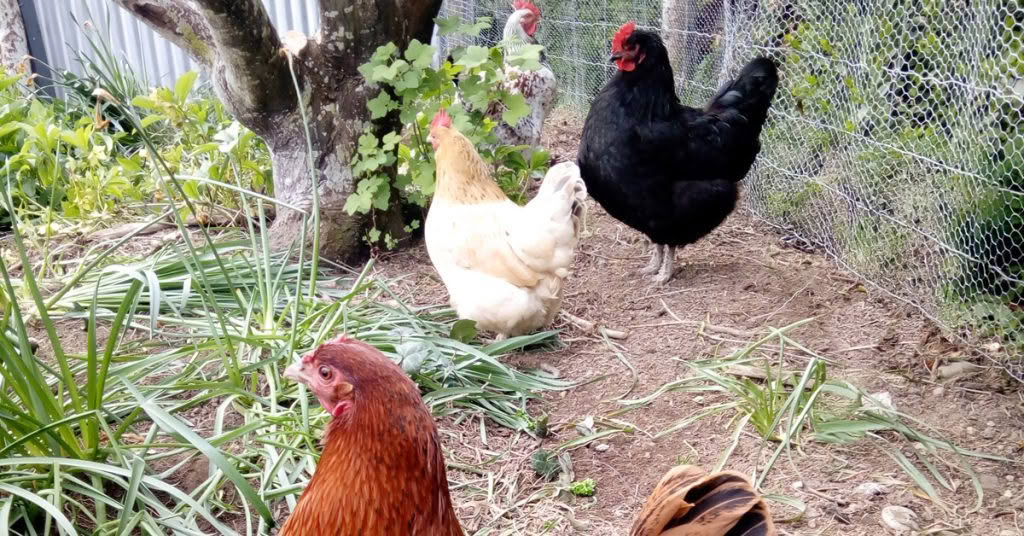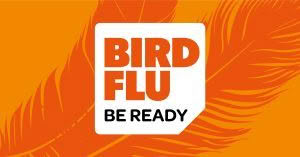Be ready for bird flu
If you’re one of the thousands of New Zealanders who own backyard chickens or keep birds as pets, now is a good time to get ready for bird flu in case it arrives here.
A strain of high pathogenicity avian influenza – also known as bird flu – has been spreading around the world, affecting both domesticated and wild birds. This strain, HPAI H5N1 2.3.4.4b, has the potential to significantly impact New Zealand’s poultry sector, wildlife and biodiversity. Rare human cases have been recorded around the world.

Now is a good time to get ready for bird flu. Learn the steps to protect New Zealand’s birds.
New Zealanders keep birds for a wide range of reasons – including for eggs, meat, to show, and for companionship. And the types of poultry we keep vary, from the popular laying breeds Hyline and Brown Shaver, through to more exotically named types such as Speckled Sussex, Plymouth Rock, Rhode Island Red, Wynadotte, Orpington and Pekin Bantam. We also keep cockatiels, lorikeets, parakeets, racing pigeons, canaries, finches, budgies and many more.
There’s no requirement to register pet birds or backyard poultry, so we don’t know for sure how many there are in New Zealand, but estimates put it at 50-60,000 or more.
Chief Veterinary Officer for the Ministry for Primary Industries (MPI), Dr Mary van Andel, says people with backyard poultry or pet birds should be thinking now about how to protect them if bird flu reaches our shores. ‘New Zealand’s geographical isolation has kept us safe from bird flu so far, but we can’t rely on that forever.’
A highly contagious virus, this H5N1 strain of bird flu has caused the deaths of millions of birds across the northern hemisphere and the Americas, including native species, as well as commercial and backyard poultry.
‘Because this disease is spread by wild birds, it’s unlikely we’ll be able to keep it out of New Zealand or eradicate it once it establishes in wild birds. But we can reduce the impact by being prepared. Everyone has a part to play in protecting New Zealand’s birdlife,’ says Dr van Andel.
Infected birds shed the virus in their saliva, nasal secretions and droppings. It spreads quickly by direct, bird-to-bird contact as well as indirectly – that means birds can get it by coming into contact with feed, water, clothing and equipment that has been contaminated by infected birds.

How to protect your birds
The best way to keep your birds safe is to prevent contact with infected birds or materials.
● Make enclosures bird proof by repairing or blocking holes.
● Keep your birds away from open ponds, lakes, creeks or other water used by wild birds.
● Thoroughly wash your hands with soap and water before and after handling birds.
● Keep bird housing, bedding and equipment clean.
● Don’t share equipment with other bird owners – including egg cartons and other storage materials.
● Clean your footwear and wash clothing regularly. Avoid using the same clothing and footwear around your birds if you have visited other flocks, or events such as shows.
● Use pest control to control rats and mice, which can carry diseases on their feet and fur.
● Use fencing or netting to keep wild birds away from your birds’ feed and water.
● Buy birds, litter and feed from accredited sources.
● Keep new birds separated in an area away from existing birds for 2 weeks and ensure they are healthy before introducing them to your current birds.
● Use treated (chlorinated) mains water and bore water that has been tested and is less likely to be contaminated by wild birds.
If your birds are sick, consult your veterinarian first to rule out more common diseases. Wait for your veterinarian’s instructions before handling any sick or dead birds.
Visit the Ministry for Primary Industries’ website for more information about bird flu and what you can do to protect your birds.

